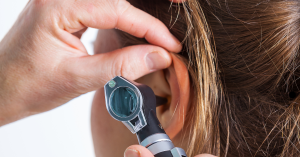When someone you care about is diagnosed with hearing loss, it can be a confusing and emotional time—for both of you. You may feel unsure about how to respond, what to say, or how best to help. Hearing loss not only affects a person’s ability to communicate but also their emotional well-being, confidence, and social life. As a loved one, your support can play a powerful role in their adjustment process.
The journey after a hearing loss diagnosis involves more than just medical appointments and devices—it requires compassion, patience, and understanding. Whether it’s your spouse, parent, friend, or sibling, your presence and encouragement can make a world of difference. In this guide, we’ll explore practical, emotional, and communication-based strategies to help you support someone who is navigating this new chapter in their life.
Understanding the Emotional Impact of Hearing Loss
A new diagnosis of hearing loss often brings a wave of emotions that can be difficult for both the individual and their loved ones to process. Feelings of denial, anger, frustration, sadness, and even embarrassment are common. Many people struggle with the sudden realization that something as fundamental as their ability to hear is changing—something they may have taken for granted for decades.
You may notice your loved one withdrawing from conversations, avoiding social situations, or seeming more irritable than usual. These behavioral changes are often a reflection of internal emotional stress. People with newly diagnosed hearing loss can feel isolated or “left out” during conversations, which may lead to a loss of self-esteem and confidence. They might also feel misunderstood or unsupported, especially if others don’t recognize the emotional weight of the diagnosis.
This is where your empathy and patience become invaluable. It’s important to acknowledge their feelings without trying to immediately “fix” them. Offer a listening ear and create a safe space where they can express their fears, frustrations, or confusion without judgment. Sometimes, just being there—without offering solutions—is the most supportive thing you can do.
Avoid minimizing their experience. Phrases like “It’s not that bad” or “At least it’s not something worse” can feel dismissive, even if well-intentioned. Instead, validate their emotions by saying things like, “That must be really hard,” or “I can only imagine how frustrating this must feel for you.”
Encourage them to talk to others who have been through similar experiences. Peer support groups, either online or in person, can provide a sense of community and reduce feelings of isolation. Sharing stories with people who “get it” can be incredibly healing.
Ultimately, recognizing the emotional impact of hearing loss is the first step in providing meaningful support. By acknowledging the psychological side of the diagnosis, you help lay the groundwork for healthier communication, stronger relationships, and more effective long-term coping strategies.
Educating Yourself About Hearing Loss
One of the most empowering things you can do for a loved one newly diagnosed with hearing loss is to educate yourself. Understanding what they’re going through—medically, socially, and emotionally—can help you offer informed and compassionate support. It also shows your loved one that you care enough to learn about their condition, which can strengthen your bond during what may be a difficult time.
Start with the basics. Hearing loss generally falls into three categories: sensorineural, conductive, and mixed. Sensorineural hearing loss, the most common type, involves damage to the inner ear or auditory nerve and is usually permanent. Conductive hearing loss occurs when sound is blocked in the outer or middle ear and is sometimes treatable with surgery or medication. Mixed hearing loss is a combination of both.
It’s also helpful to learn about the degrees of hearing loss—mild, moderate, severe, or profound—and how each level impacts communication. For example, someone with mild hearing loss might struggle with soft speech or background noise, while someone with severe hearing loss may not hear speech at all without amplification.
Understanding treatment options is equally important. Many people benefit from hearing aids, while others may require cochlear implants, assistive listening devices, or communication strategies like lip reading. Encourage your loved one to visit a licensed audiologist who can provide a comprehensive hearing assessment and tailor solutions to their specific needs.
You might also want to familiarize yourself with the psychological and social effects of hearing loss. It’s not just about sound—hearing loss can affect a person’s sense of identity, mental health, and relationships. Numerous studies link untreated hearing loss to increased risk of social withdrawal, depression, and cognitive decline.
To stay well-informed, seek out reputable resources like the Hearing Loss Association of America (HLAA), the National Institute on Deafness and Other Communication Disorders (NIDCD), or trusted audiology clinics and organizations. Reading personal stories or attending educational seminars can also deepen your understanding.
By investing time in learning about hearing loss, you’re better equipped to empathize with your loved one’s daily challenges, advocate on their behalf, and help guide them toward helpful resources. Most importantly, it sends a powerful message: You’re not going through this alone—I’m with you, every step of the way.
Effective Communication Strategies
Communication can quickly become one of the most frustrating aspects of living with hearing loss—for both the individual and their loved ones. Misunderstandings, repeated questions, and awkward pauses can lead to tension or embarrassment. But with a few simple adjustments, you can create a more inclusive and supportive way of interacting that preserves both clarity and connection.
The first rule is to gain attention before speaking. Say the person’s name, lightly tap their shoulder, or make eye contact before starting a conversation. This allows them to focus and reduces the chance they’ll miss part of what you’re saying.
Face the person directly and make sure your mouth is visible. Facial expressions and lip movements provide important visual cues that support speech comprehension. Avoid talking while turned away, covering your mouth, or speaking from another room.
Speak clearly, not loudly. Many people instinctively raise their voice when speaking to someone with hearing loss, but this can distort the sound and make understanding more difficult. Instead, speak at a natural pace with deliberate articulation. Pausing between phrases also gives your loved one more time to process the message.
Minimize background noise whenever possible. Turn off TVs or radios during conversations, or move to a quieter space if you’re in a noisy environment. Background noise is especially challenging for those with hearing loss, even when they use hearing aids.
Use simple phrasing and rephrase if needed. If your loved one didn’t catch what you said, try rewording the sentence rather than repeating it verbatim. Different word choices might be easier for them to understand.
Non-verbal communication plays a big role too. Gestures, facial expressions, and body language help convey tone and meaning. Don’t underestimate the power of a reassuring smile or a nod of understanding.
Avoid saying things like “Never mind” or “It’s not important” when asked to repeat something. These phrases can feel dismissive and reinforce feelings of exclusion. Instead, take the time to repeat or clarify, even if it requires a little extra effort.
Technology can also assist. Consider using speech-to-text apps, amplified phones, or captioned videos to bridge communication gaps. Many of these tools are simple, accessible, and can make a huge difference in daily life.
By adopting these communication strategies, you show respect, patience, and adaptability—all of which are crucial when supporting someone newly diagnosed with hearing loss. Good communication is more than exchanging words; it’s about making your loved one feel seen, heard, and understood.
Encouraging Professional Help and Hearing Aids
For many people newly diagnosed with hearing loss, the idea of seeking treatment or using hearing aids can be daunting. Some may feel embarrassed, resistant, or in denial about the extent of their hearing difficulties. Others may worry about cost, appearance, or whether hearing aids will actually work. As a supportive loved one, your role is to encourage—not push—your family member or friend to explore professional help at their own pace.
Start by emphasizing that hearing loss is a health issue, not a sign of weakness or aging. Framing it like any other medical condition—like getting glasses for poor eyesight—can help normalize the idea of treatment. You might say something like, “Getting your hearing checked is just like going for an eye exam. It helps you stay connected and healthy.”
Suggest visiting a licensed audiologist for a comprehensive hearing evaluation. Audiologists are trained to diagnose different types and degrees of hearing loss, explain treatment options, and recommend personalized solutions. If your loved one is nervous about the appointment, offer to accompany them for support.
One of the biggest hurdles is often resistance to hearing aids. Modern hearing aids, however, are far more discreet, comfortable, and effective than those of the past. Explain that many models are barely visible and offer advanced features like background noise reduction, Bluetooth connectivity, and automatic volume control. Sharing stories of others who have had positive experiences can also help reduce apprehension.
Be mindful of stigma and self-image concerns. Some people worry that wearing hearing aids makes them “look old” or different. Gently challenge these assumptions by reinforcing the benefits—improved relationships, greater confidence, better safety, and even cognitive health. Mention studies showing that untreated hearing loss can increase the risk of isolation and dementia.
It’s also important to recognize that hearing aids are not a quick fix. There’s an adjustment period during which the brain relearns how to process sounds. Encourage your loved one to stick with the process and stay in touch with their audiologist for fine-tuning and support.
Additionally, explore financial assistance options if cost is a barrier. Some insurance plans, non-profits, and community programs offer subsidies or low-cost devices. Helping your loved one navigate these options can ease the burden.
Ultimately, your support should be patient, consistent, and free of pressure. Celebrate small steps—like scheduling an appointment or trying a hearing aid—and offer reassurance throughout the journey. Encouraging professional help is not just about better hearing; it’s about restoring connection, confidence, and quality of life.
Creating a Supportive Environment at Home and in Social Settings
Beyond emotional encouragement and medical support, creating a physically and socially accommodating environment is essential for someone adjusting to hearing loss. Small changes in daily life can significantly enhance comfort, communication, and confidence—both at home and during social interactions.
At Home
Start by evaluating the acoustics and layout of your home. Soft furnishings like rugs, curtains, and upholstered furniture help absorb sound and reduce echo, making it easier for someone with hearing loss to understand speech. Ensure good lighting in common areas so your loved one can clearly see facial expressions and lip movements during conversations.
Visual alerts are also helpful. Consider installing doorbells with flashing lights, vibrating alarm clocks, and other assistive technologies that offer visual or tactile cues in place of sound. These devices help your loved one feel more independent and secure.
Create habits that support clear communication. Turn off background noise—like televisions or dishwashers—before starting a conversation. Make a point to face each other while talking and avoid calling out from different rooms. If multiple people are speaking, take turns and avoid talking over one another to help your loved one follow the flow of conversation more easily.
In Social Settings
Social events can be especially challenging for someone with hearing loss. Crowded, noisy environments like restaurants or family gatherings often create sensory overload. Whenever possible, choose quieter venues and ask for seating in well-lit areas, away from background noise. Circular seating arrangements can also make lip reading and facial recognition easier.
If you’re hosting a get-together, let others know in advance that someone with hearing loss will be present. Encourage guests to speak one at a time and to be patient if your loved one asks for clarification. A little group awareness can go a long way in making someone feel included rather than isolated.
Encourage your loved one to advocate for their needs, but also be ready to support them discreetly if they become overwhelmed. A quick check-in during a party or offering to step aside for a quieter conversation can be a thoughtful way to show you’re attentive to their comfort.
Building Inclusion and Confidence
Incorporate your loved one into decision-making about activities, seating arrangements, and communication preferences. This helps them feel in control of their environment rather than burdened by it. Celebrate their successes—whether it’s navigating a noisy restaurant with ease or confidently wearing their hearing aids in public.
Above all, remember that creating a supportive environment is about fostering connection, inclusion, and dignity. When someone with hearing loss feels valued, heard, and accommodated, their overall quality of life improves—and so does your relationship with them.
Conclusion
Supporting a loved one newly diagnosed with hearing loss is an ongoing journey that calls for patience, empathy, and a willingness to adapt. While the diagnosis may initially bring confusion or emotional strain, it also opens the door to deeper understanding and connection. Your support—whether through thoughtful conversation, gentle encouragement, or practical adjustments—can profoundly impact how your loved one copes and thrives in this new phase of life.
The key is to be present. Listen without judgment. Learn about their condition. Encourage professional guidance while respecting their pace. Most importantly, create a world where they feel seen, included, and valued—not despite their hearing loss, but with full recognition of the unique challenges they now face.
Hearing loss doesn’t have to mean losing touch with loved ones, social life, or confidence. With your help, your family member or friend can embrace new tools, rebuild communication strategies, and feel supported every step of the way.
FAQ
What are the first steps to take after a hearing loss diagnosis?
The first step is to schedule a comprehensive hearing evaluation with a licensed audiologist. This will help determine the type and severity of hearing loss and explore appropriate treatment options, such as hearing aids or assistive listening devices. Emotional support and educating both the individual and their family about hearing loss are also key early actions.
How can I talk to a loved one who is resistant to getting hearing aids?
Approach the topic with empathy rather than pressure. Focus on the benefits—like improved relationships, safety, and mental health—rather than the device itself. Offer to attend an audiology appointment with them and share success stories of others who have benefited from hearing aids.
What are some simple ways to improve communication at home?
Speak clearly while facing the person, minimize background noise, and ensure good lighting so facial expressions and lip reading cues are visible. Don’t shout or speak from another room, and use visual cues or gestures to support your words. Patience and repetition (when needed) are helpful too.
Can untreated hearing loss affect mental health?
Yes. Studies have shown that untreated hearing loss is linked to social withdrawal, depression, and even cognitive decline. That’s why emotional support, prompt treatment, and inclusive communication are essential parts of hearing loss care.
Are there affordable options for hearing aids or assistive devices?
Yes. Many community health programs, nonprofits, and insurance plans offer financial assistance or low-cost hearing aids. Some audiology clinics also provide payment plans or sliding scale options. Research local resources or ask a hearing healthcare provider for guidance.
This article is for informational purposes only and is not a substitute for professional medical advice, diagnosis, or treatment. If you are concerned about your hearing or ear health, please consult a qualified healthcare provider.






